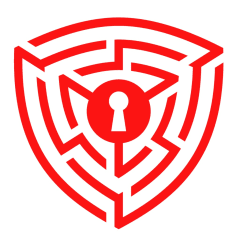Architects and architectural designers share many similarities in terms of their work, but there are also some key differences between the two professions.
Architects are licensed professionals who have completed a rigorous education and training program, typically lasting five to seven years. They are legally authorized to design buildings and structures, oversee construction, and ensure that their projects meet safety, zoning, and environmental regulations. Architects have a deep understanding of building codes, materials, and construction techniques, as well as an ability to manage complex projects and teams of professionals.
Architectural designers, on the other hand, may not be licensed professionals, and may not have completed the same level of formal education and training as architects. While they may have a degree in architecture or a related field, their work typically involves assisting architects or working on smaller-scale projects. They may be involved in the design and planning stages of a project, but they do not have the legal authority to sign off on construction documents or oversee construction.
In terms of job responsibilities, architects and architectural designers both work on creating and developing design plans for buildings and other structures. However, architects may have a broader range of responsibilities, including managing budgets, supervising construction, and ensuring that their projects meet legal and environmental requirements. Architects may also have more opportunities for career advancement and higher salaries compared to architectural designers.
Overall, while architects and architectural designers have some similarities in their work, architects have a greater level of education, training, and legal authority, as well as a wider range of responsibilities and opportunities for career advancement.
Related Careers

Incident Responder
An incident responder is a cyber security professional responsible for identifying, investigating, and mitigating security incidents within an organization.

Cryptanalyst
A cryptanalyst is a specialist in the field of cryptography who focuses on analyzing cryptographic systems and breaking codes to decipher encrypted information.

CISO
A Chief Information Security Officer (CISO) is a senior executive responsible for managing and overseeing an organization's information security program.

Security Software Developer
A security software developer is responsible for designing and developing software applications with a strong focus on security.

Cryptographer
A cryptographer specializes in the field of cryptography, which involves the study and practice of secure communication and data protection.

Security Architect
A security architect is a cybersecurity professional responsible for designing and implementing secure systems, networks, and applications to protect an organization's digital assets from cyber threats and attacks.

Penetration Tester
A penetration tester evaluates the security of computer systems, networks, and applications by simulating real-world attacks.

Information Security Director
An information security director is responsible for leading and overseeing the information security function within an organization.

Digital Forensics Analyst
Digital forensics analysts investigate and analyze digital evidence to uncover information related to cybercrime, data breaches, or other digital incidents.

Red Teamer
A red teamer specializes in conducting adversarial simulations and assessments of an organization's security measures, with the goal of identifying vulnerabilities and weaknesses.

Blue Teamer
Blue teamers are cybersecurity professionals who specialize in defensive security measures and strategies.

SOC Manager
A Security Operations Center (SOC) manager is responsible for overseeing the day-to-day operations and strategic direction of a SOC.

Security Engineer
A security engineer is responsible for safeguarding an organization's information technology infrastructure and data from potential threats, vulnerabilities, and cyberattacks.

Ethical Hacker
An ethical hacker is a cybersecurity professional who is hired by an organization to identify and fix vulnerabilities in their computer systems, networks, and applications.

Information Security Analyst
An information security analyst is responsible for safeguarding an organization's computer systems and networks against cyber threats and unauthorized access.

Cybercrime Investigator
A cybercrime investigator is responsible for investigating and combating cybercrimes.

Information Security Manager
An information security manager is responsible for overseeing and managing the information security program within an organization.

IT Security Consultant
An IT security consultant provides expert advice and guidance on information technology security matters to organizations.

